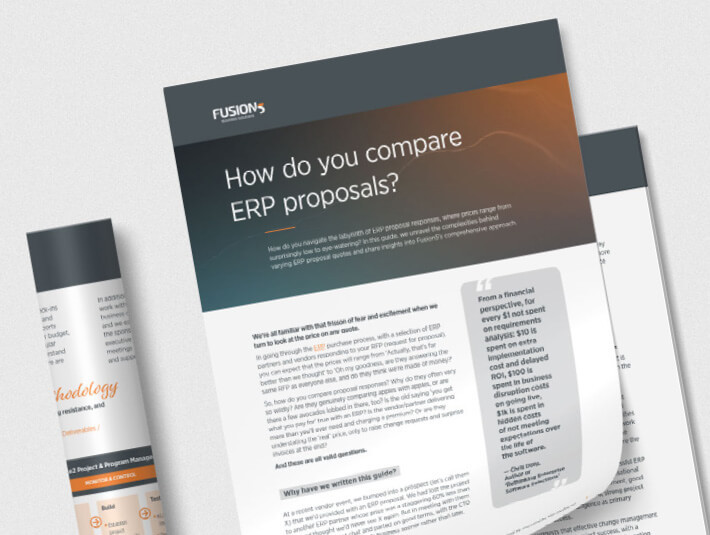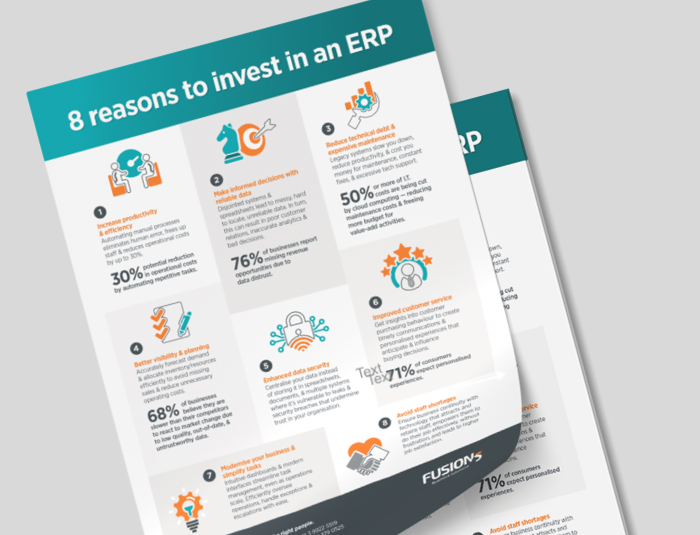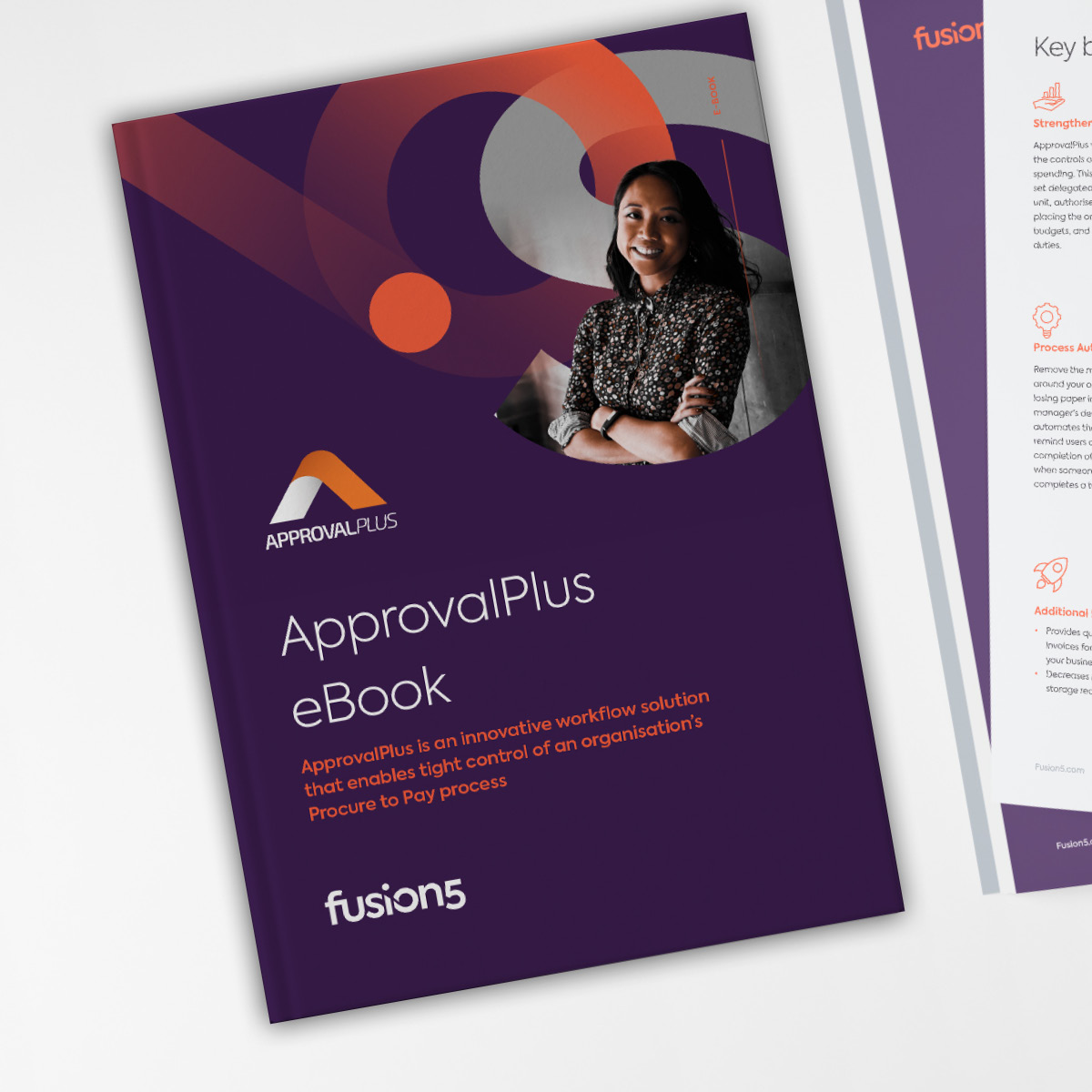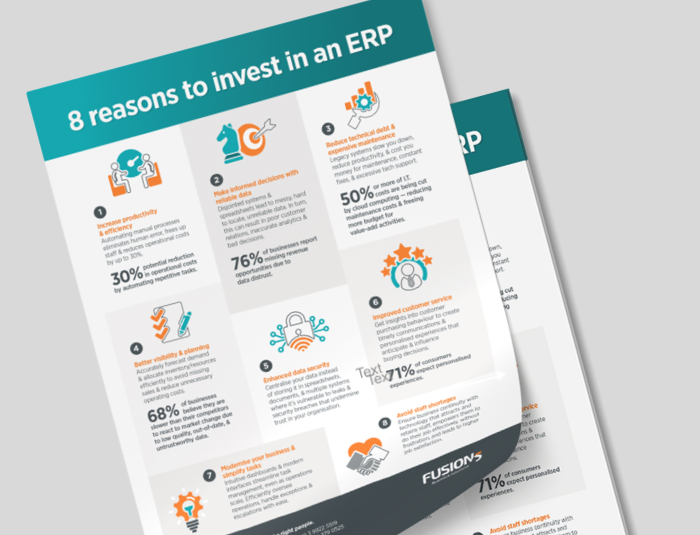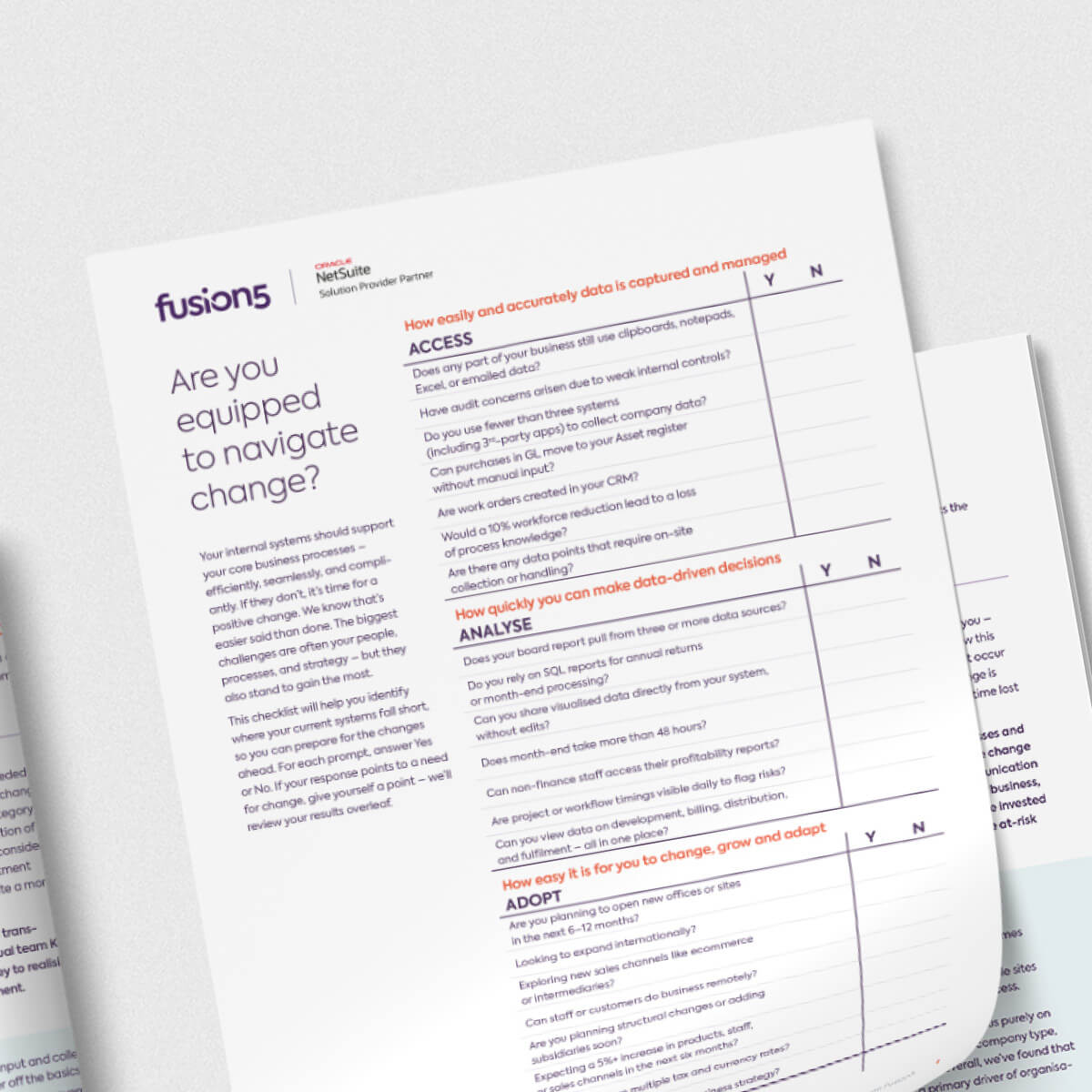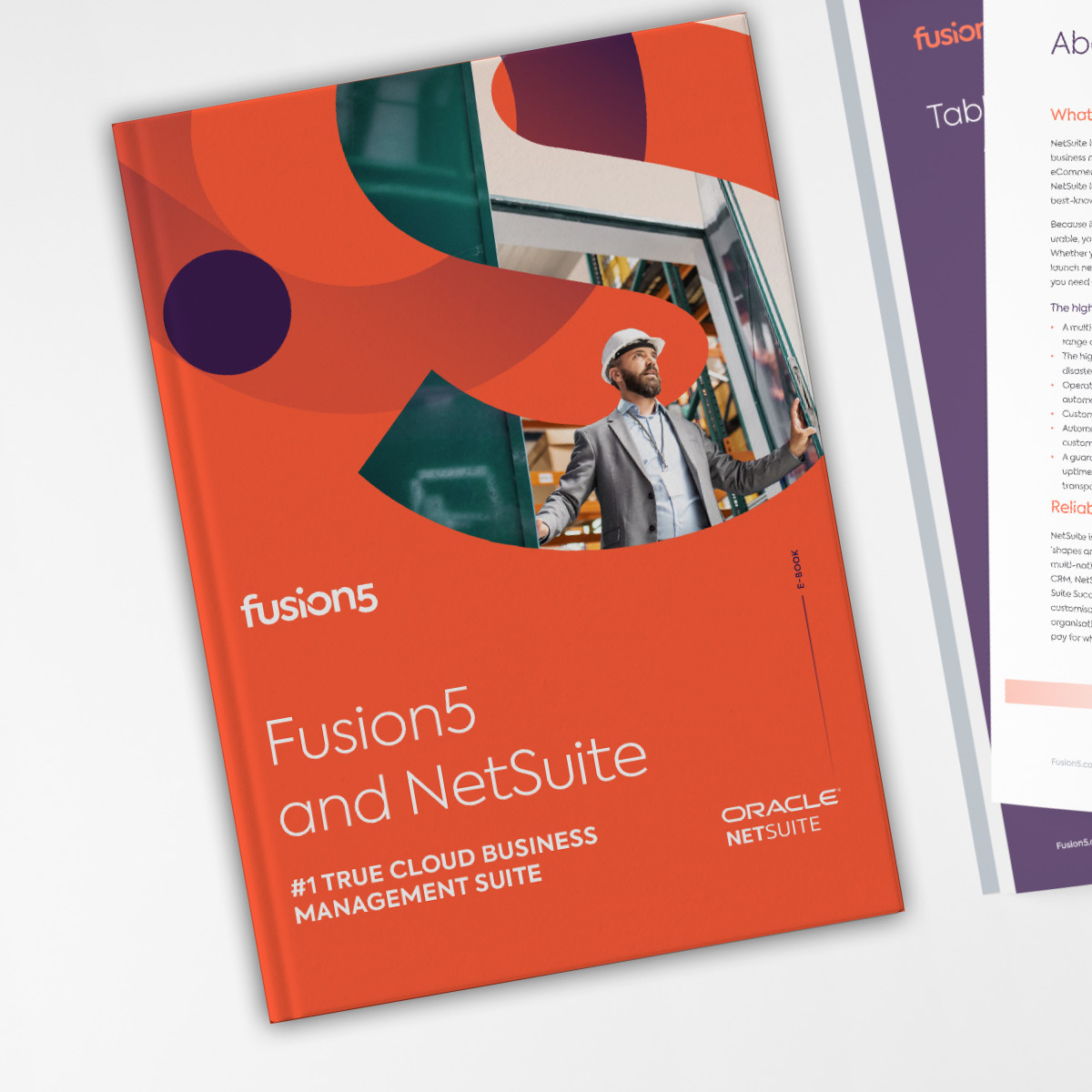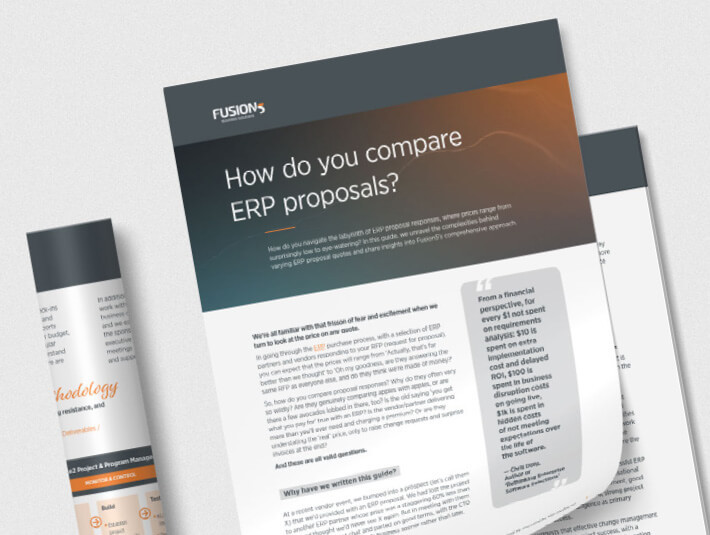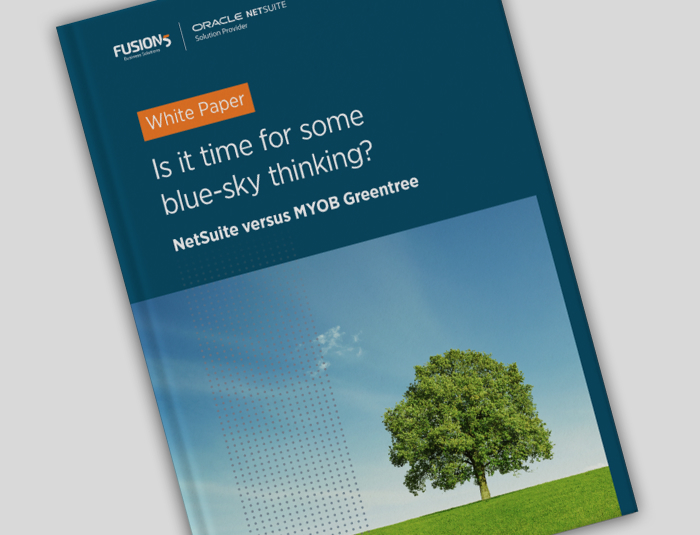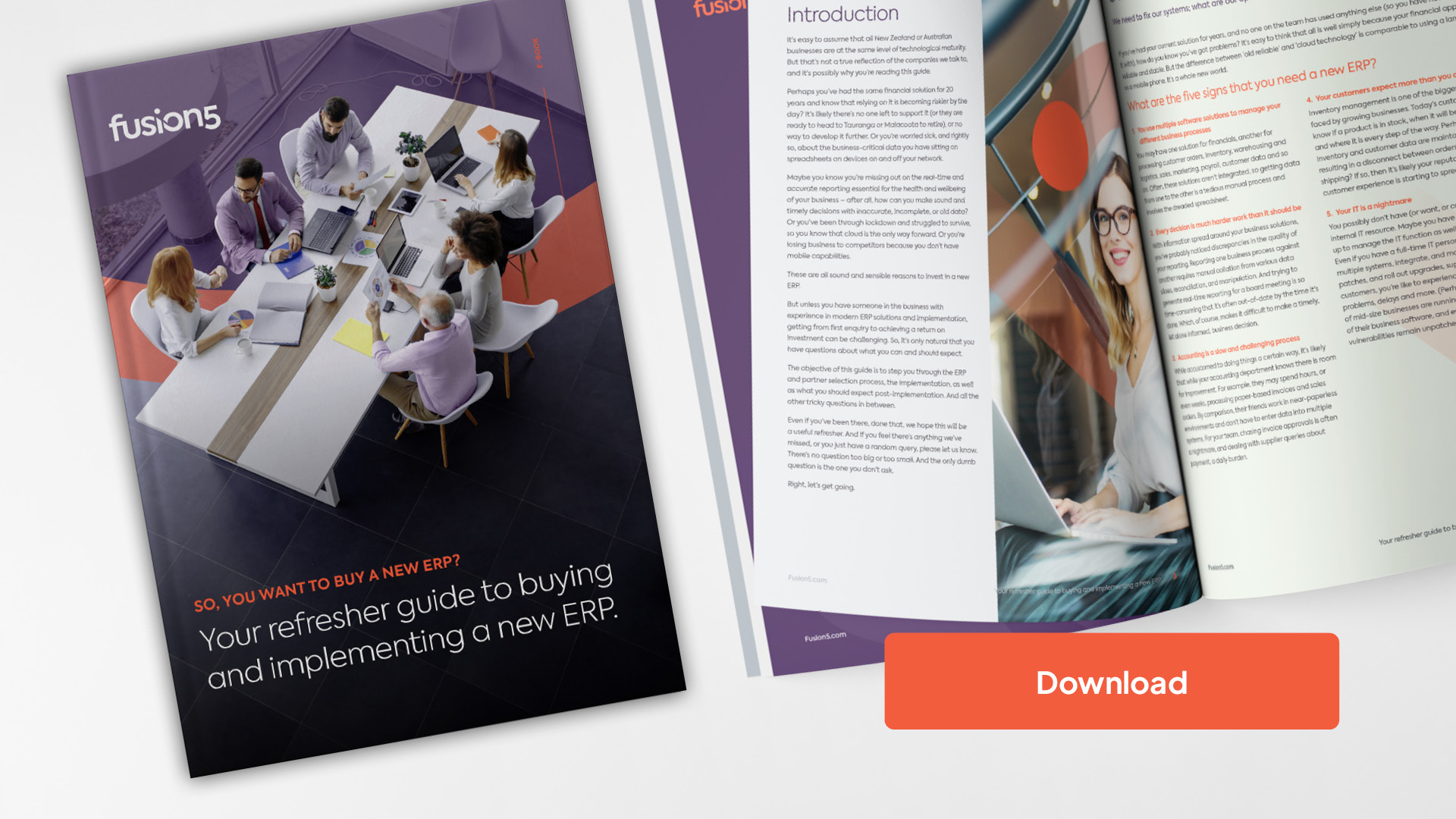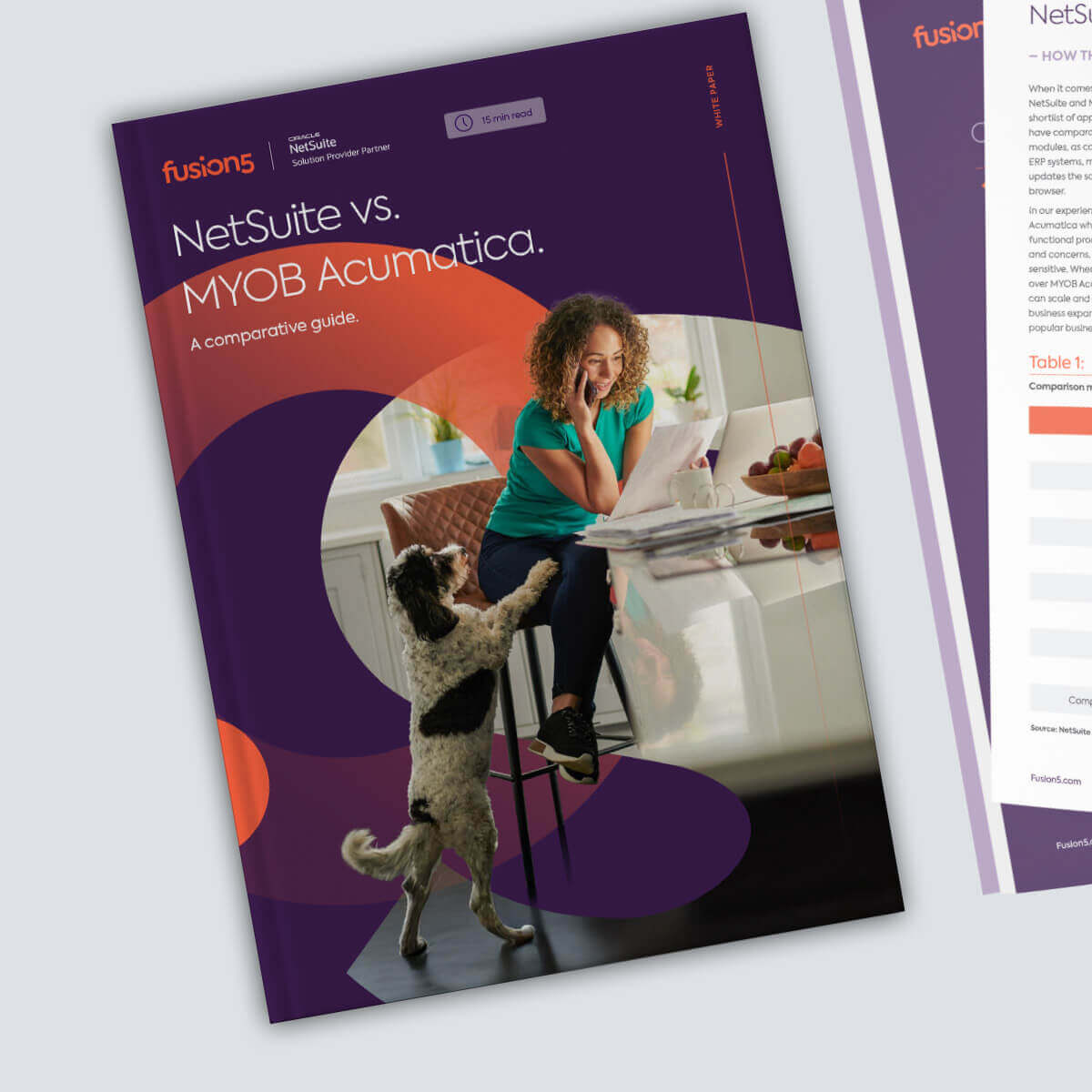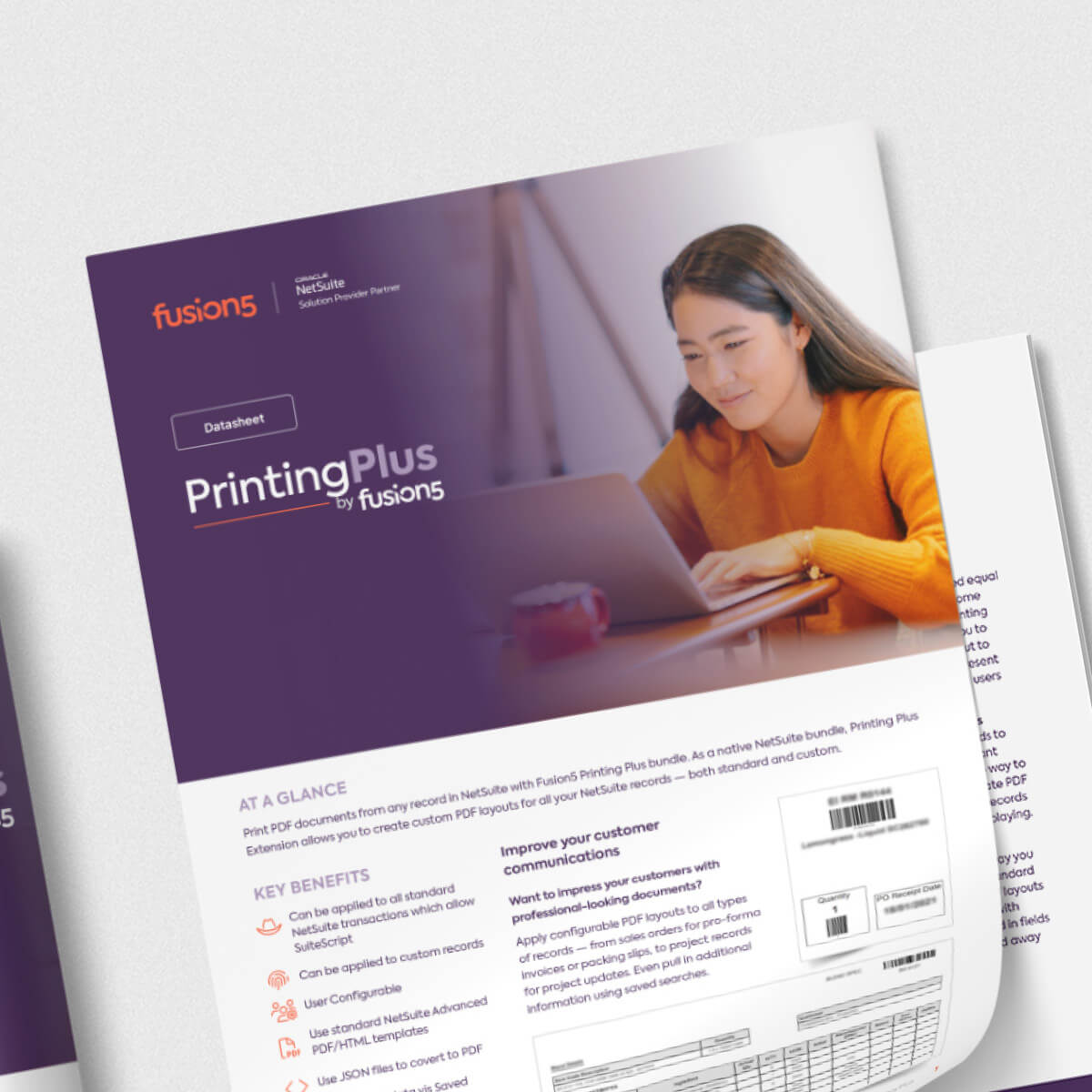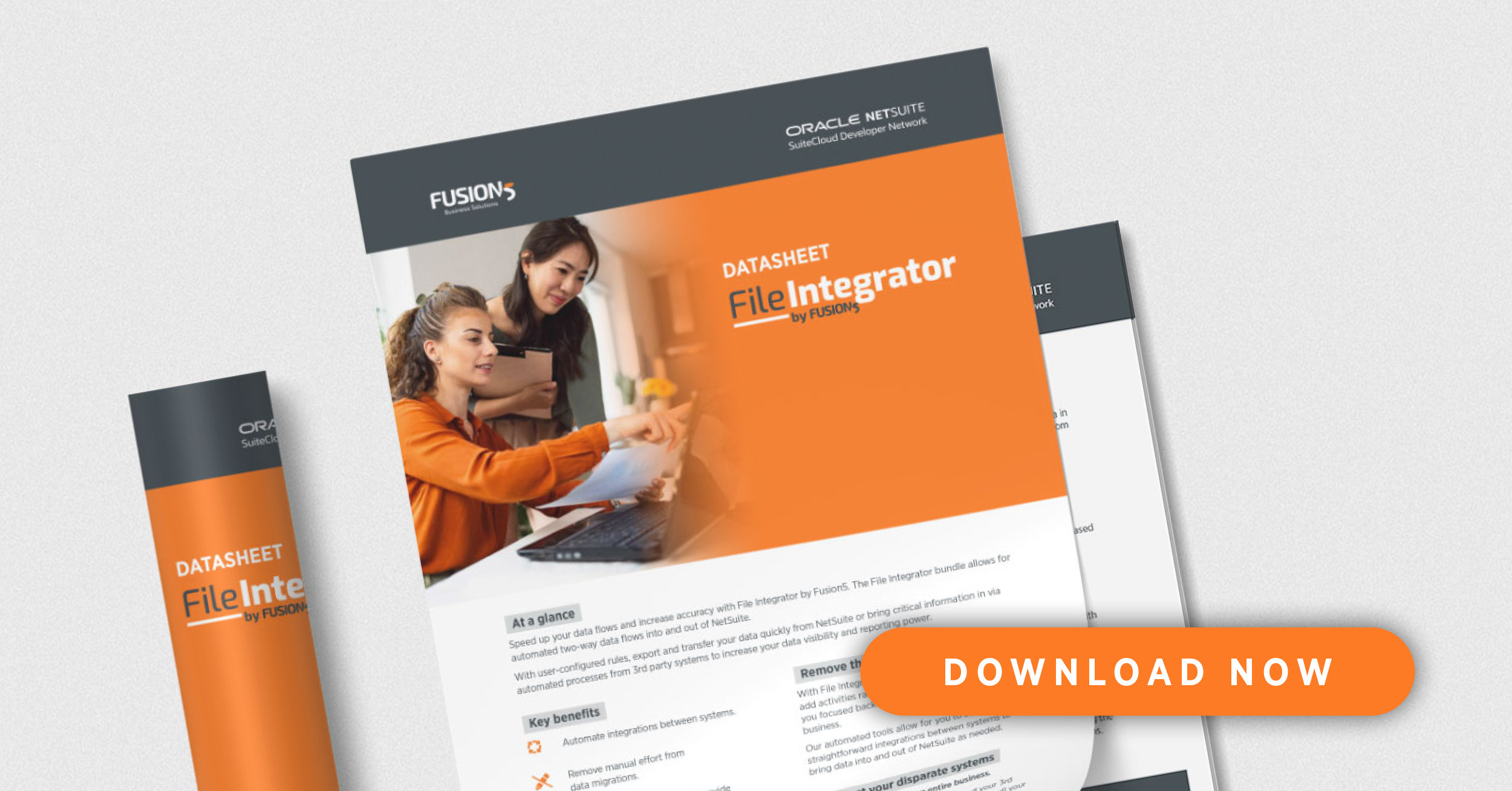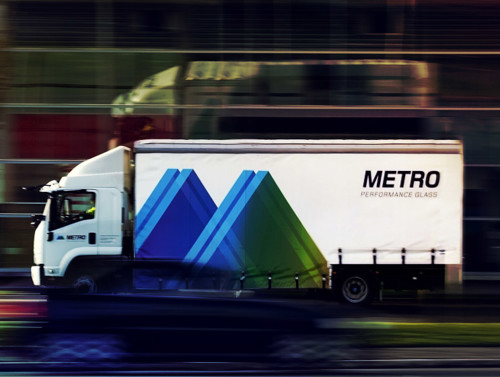ERP stands for Enterprise Resource Planning. An ERP integrates all the essential business processes you use every day into a single, fully featured system. Think financials, inventory, supply chain, customer relationship management (CRM), order management, HR, manufacturing and more, rolled up into one application. Most importantly, all functions share a centralised database, so your data is always accurate, up-to-date, and available in real-time between departments. All business transactions and activities are processed in one system, with a single interface so you don’t need to skip from one solution to the next. It’s a complete one-stop shop!
ERP: Your ticket to better visibility, control, and efficiency
Enterprise Resource Planning (ERP) systems are software that manages and integrates critical business processes and systems into one fluid system. If you are growing and being held back by legacy software, or have put up with one too many embarrassing management meetings where Barry from the Warehouse's spreadsheet doesn't match Karen from Finance's stock numbers, it's time to consider evolving to a fit-for-purpose ERP solution.
Synchronised access to data
Real-time data available to everyone that needs it, in a centralised location, accessible remotely and inter-departmentally.
Faster, higher, stronger
The right ERP system will make your business more efficient and more productive. Having access to real-time data and insights leads to well-informed decisions - made quickly - which will positively impact your bottom line and build a competitive advantage.
Greater control, lower costs
The ability to scale in line with environmental and commercial influences is critical to business continuity and attaining competitive advantage. The right ERP system gives you the insights and power of automation to give you impeccable control over data and operational structures. This control ensures lower operational costs, and a lean and responsive business.
Tighter security
Modern cloud ERP systems come with built-in security resources that protect the integrity and privacy of your data, control access to data by role, and enforce users’ create, read, write, download and share privileges. And ongoing, automated updates rapidly address known system vulnerabilities.
Happier customers
A fit-for-purpose ERP system makes your staff's jobs easier. With real-time data, coupled with AI powered insights, you can quickly and easily see themes and trends (e.g., purchase times, inventory levels) that will enable you to make decisions that help you meet customer needs more instinctively.
More flexibility
No, we can't help you do the splits, but, a great ERP system can give you the agility to adapt to changing market needs, plus the confidence to act! Robust, trustworthy, real-time data empowers you to incorporate necessary changes quickly, and monitor the results as you go.
Explore ERP solutions
Integrate your core business systems (accounting, finance, supply chain, operations, manufacturing) with the right ERP system, to create a 'single pane of glass' view of your company. Improve collaboration, empower data-driven decisions, and increase productivity levels.
How do you choose the right ERP system for your business?
Download our eBook to discover the differences and similarities between Oracle NetSuite, Microsoft Dynamics 365 Business Central, and Dynamics 365 Finance, including:
- Operational, cultural, and industry fit by solution
- Feature and benefit tables by solution
- The importance of partner fit (and what to consider)
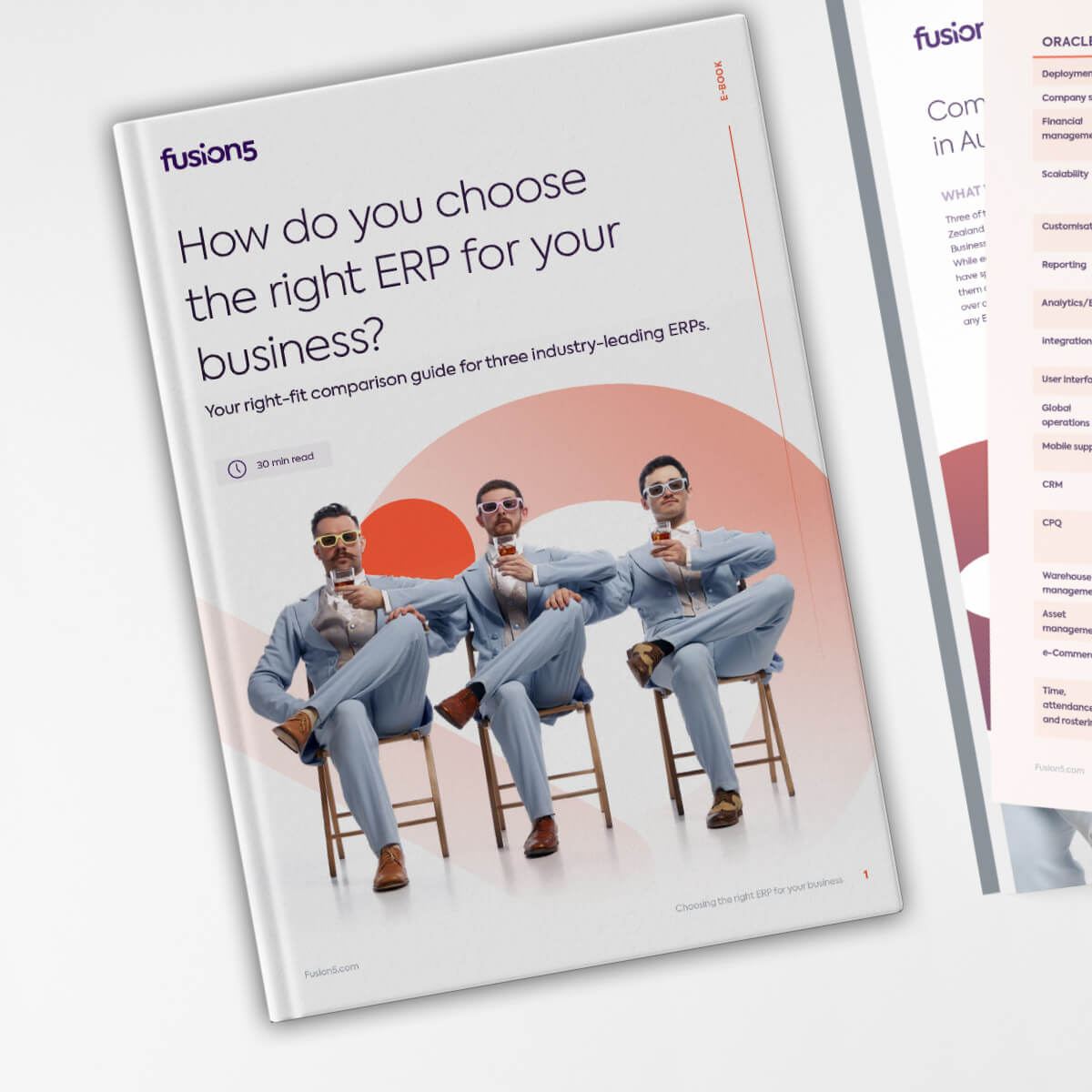
Frequently asked questions
What are the benefits of ERP software for enterprise business?
The list is long, but here are eight key benefits:
- You’ll have on-demand access to real-time information and data. With the immediate gain of a uniform and reliable flow of business data and information across all departments, you can make better decisions, more quickly.
- Collaboration is improved. Say goodbye to the frustration of unavailable information. Your people will be able to get the information they need to act, when they need it.
- You’ll gain a 360° view of business operations. Integrated data highlights the knock-on effect of change quickly, so you have time to minimise impact, or take advantage of an opportunity.
- Productivity is (often vastly) improved. An ERP will help you eliminate repetition in business processes and tedious manual tasks, saving time and money.
- Reporting, estimating, and quoting (and more) are simplified. With improved reporting capabilities, you can rapidly respond to complex data requests. Usually without IT assistance.
- Everything’s seamlessly integrated. Because of its centralised database, your ERP integrates silo departments and processes. Ideas are shared, decisions coherent and fast, and the customer experience improved!
- Reduce your operating costs. ERPs eliminate many manual administrative tasks by sharing data and automating business processes — so you can do more, with less. Even in times of business growth, staff numbers can remain static.
- Your customer service will improve. A CRM is usually an integral part of an ERP system, and provides your sales and customer service teams the accurate customer information they need to improve communications and response times.
What are the business functions of ERP software?
While it may differ from system to system, these are the main functions of a modern ERP:
The heart of any ERP is the financial management module which handles everything from invoicing and accounts, to tracking the flow of money, forecasting, purchases, and payroll. Often in multiple currencies.
The CRM module supports and improves and the sales and marketing processes. It stores data related to customers and prospects, and can track buying habits and contact histories.
The HR module processes all the tasks related to managing your employees, including timesheets, payroll (including automatic payments and tax deductions), benefits, onboarding and off-boarding.
In order to improve Supply Chain Management, the SCM module works with the inventory management module, using real-time data to optimise manufacturing and distribution processes.
And the Inventory Management System module processes order fulfilment and tracks warehouse inventory in real time, so you don’t need to do it manually.
Other modules available include Business Intelligence (BI) and Manufacturing. To note, new modules are continually being added to meet the demand of specific industries sectors.
What is an ERP Implementation Life Cycle?
The ERP Implementation Life Cycle is the end-to-end process of implementing the solution in your business. It starts with planning and organisation, system selection and installation, data conversion and loading, user training and procedure development, testing and validation, cut over and “go live” and, finally, follow-through and project completion.
What are the advantages of cloud-based ERP software?
Most modern ERPs are based entirely in the cloud, or are hybrid solutions which use a mix of on-premises, private, third-party or public cloud services.
Cloud-based ERP has several significant benefits for your business or enterprise. First — no more upgrade pains! ERP vendors make a huge investment in keeping their software current. They now make regular updates, with minimal disruption to your business.
Next — if you choose a cloud-only solution, you move from a CAPEX to an OPEX model. Having to spend often hundreds of thousands on new servers or fixing corrupt data is a thing of the past.
And then, it’s far easier to support a mobile or remote workforce. As cloud systems are, well, in the cloud, all that’s needed is an internet connect and you can, with the right level of permission, access real-time data, and the business processes needed to do your job.
How does ERP software facilitate information flow between business functions?
ERP software integrates all functions of a business operation, including financials, customer records, product planning, development, manufacturing processes, sales and marketing and more. So, using the concept of a master database, the ERP facilitates the flow of accurate, consistent, real-time information between all these integrated functions, and additionally manages connections to your external stakeholders (think suppliers, partners and parent companies).
What is the role of data migration when moving to an ERP system?
Data migration is a systematic and phased approach for transferring your data from (usually multiple) old systems to the new ERP. There’s normally a specific migration methodology used to ensure success. Records to be migrated tend to include customer, vendor and item master files, bills of material, production facilities and routings, general ledger chart of accounts, etc.





